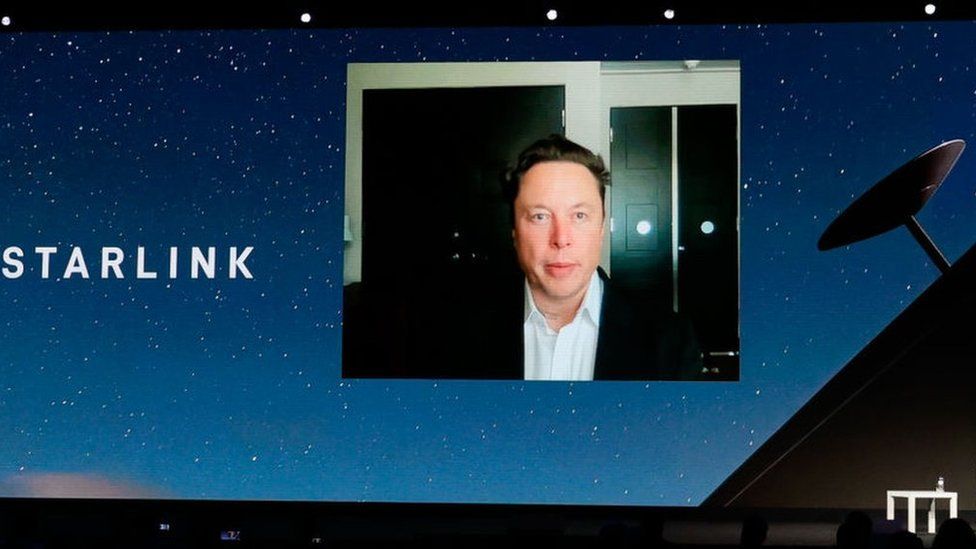Elon Musk sets out Starlink goals
- Published

Elon Musk claims his Starlink satellite-internet system should be able to provide a connection from anywhere except the poles by August.
He spoke as rival OneWeb secured the funding it needs to complete its first-generation constellation of 648 satellites.
Starlink customers connect using small satellite receivers, dubbed Dishy McFlatFace, priced at $500 (£360).
But Mr Musk said the terminals cost more than $1,000 (£720).
Appearing remotely at Mobile World Congress, which is being held both physically in Barcelona and also online, he said Starlink "has passed the strategically notable number of 69,420 active users".
And he hoped to have 500,000 users within 12 months.
The company had two partnerships with "major country" telecommunications companies, Mr Musk said.
And Starlink helped companies meet their 5G licence conditions, which require supplying coverage to rural customers.
Space X has launched about 1,800 satellites into orbit already and hopes to have 12,000 in the sky by 2026.
The combined solar power of the satellites generated 5MW of electricity, Mr Musk said.
Starlink began a UK trial of its services in January, after Ofcom granted it a licence in November.
OneWeb, partly UK taxpayer owned, has 218 satellites in low Earth orbit and is due to launch a further 36 on Thursday.
It is expected to begin offering commercial internet services soon, covering latitudes above 50 degrees north.
And this month, OneWeb and BT signed a deal to explore ways to provide broadband internet to remote areas of the UK and at sea.
Amazon also plans to launch a constellation of low Earth-orbit satellites to provide broadband access to remote areas, as part of its Project Kuiper.
Astronomers have raised concerns about the light pollution and other interference cased by these constellations of low Earth-orbit satellites.
Related Topics
- Published27 June 2021
- Published11 January 2021